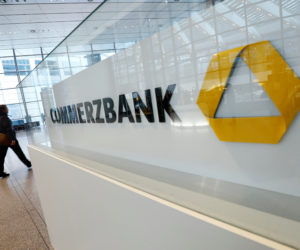By Dan Byrne for AMLi
THE owner of virtual currency ‘mixer’ has been handed a $60 million fine from the US financial watchdog for multiple violations of AML law.
The Financial Crimes Enforcement Network (FinCEN) issued the penalty to Larry Dean Harmon who founded, owned and operated two businesses – Helix and Coin Ninja – over a six-year period from 2014 to 2020.
Both ventures operated as ‘mixers’, exchanging convertible currencies by accepting and transmitting bitcoin for customers through a variety of means.
FinCEN said that both these businesses failed to comply with the American Bank Secrecy Act (BSA) and the associated regulations and guidelines.
Helix and Coin Ninja offered their services in “the darkest spaces of the internet” where customers were able to anonymously pay for things such as drugs, guns and child pornography, FinCEN said in a statement.
Mr Harmon was deemed to have “wilfully violated the BSA’s registration, program and reporting requirements by failing to register as an MSB [Money Services Business], failing to implement and maintain an effective anti-money laundering program, and failing to report suspicious activities.”
More precise offences committed as part of these actions included the lack of required data on customer names, addresses and other identifiers – affecting over 1.2 million transactions – among other efforts designed to intentionally avoid the BSA’s requirements.
Mr Harmon is currently being prosecuted in a DC District Court on charges of ‘conspiracy to launder monetary instruments’ and the ‘operation of an unlicensed money transmitting business’ in connection with Helix.
Helix was found to have facilitated the transferal of over $121.5 million to darknet-associated addresses, FinCEN said.
Mr Harmon had previously argued that the normal AML regulations did not apply in this case as bitcoin was not a currency under the traditional definition. A federal judge ruled against him in August this year.
FinCEN also stressed their previous clarifications that exchangers and administrators of convertible virtual currency – including ‘mixers’ – fall under the legal umbrella of the BSA and, as such, must meet its requirements.
Share this on:
Follow us on:








